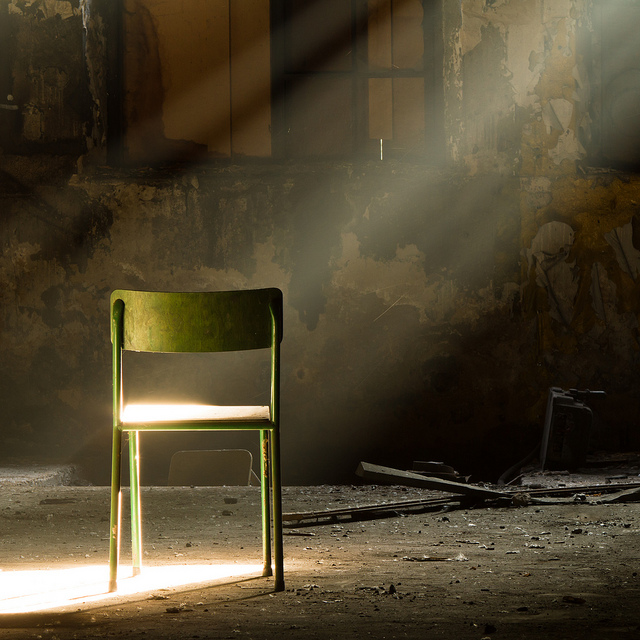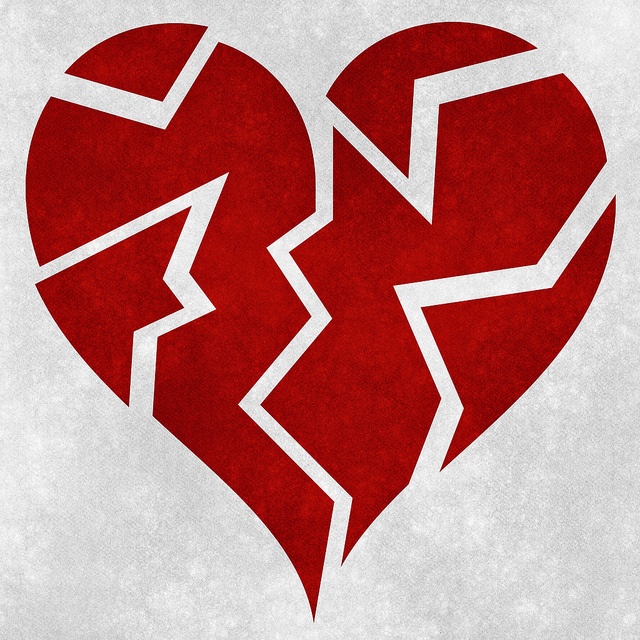Life will beat us up.
We can try to avoid it, but like the IRS, life will come knocking to collect its dues. When it collects, it usually gives us a black eye. Draws blood. Breaks hearts.
It's happened to me. I'm sure it's happened to you. Better yet, I can guarantee there's more on its way.
Encouraged yet?
I don't know why terrible stuff happens to us. I won't try to go there. But I do know our pain shapes us--for good and for bad. I know that we can grow in astonishing ways from our pain--if we're intentional about it.
The best-case scenario for us is not to avoid pain altogether (because it's impossible); it's to learn as much as we can from every fight to better prepare for the next one, and to leverage our pain to live the fullest, deepest lives possible.
To that end, I thought I'd share the top three lessons that my pain has taught me. They're lessons that have changed the trajectory of my life and continue to shape and influence my decisions. I hope they're useful to you, too.
The first lesson is this:
I can't do it alone.
As I've gone through trials, the single best decision that I've made has been to invite people into my struggles.
My story goes down a much different, much darker path if not for the people who provided me with support. I had friends and family praying for me, sending me texts and emails, dragging me out for coffee or dinner or a hike--all to encourage me, to listen to me, to help carry some of the weight, and even to let me know when I was being an idiot.
The support didn't stop with friends and family. In some of my deepest turmoil, I was juggling work at school, church, and grad school on top of maintaining my relationships, all while floundering in heartbreak. I had tried to keep it all together, stay upright as the wind and waves tossed me around, but at some point it became impossible. I needed help.
I'll never forget the unbelievable understanding and compassion my bosses, professors, and advisers showed me when I opened up to them. The best thing a drowning person can do is ask for someone to toss them a buoy.
I still tear up when I think about all of these people and what they've done for me--they saved me. They walked with me through darkness until I found light.
I might have never found it without them.
The second lesson is a resolution that I forged in the fire fueled by years of feeling like I wasn't enough:
I won't waste another second of my life trying to convince someone I'm worth being loved.
Somewhere along the way, some of us get it into our heads that we have to work at deserving love. That we're not yet worthy of that prestigious honor, and we have to do just a bit more to get there. Sometimes this is because of a romantic partner; for others, it's a parent, a teacher, a friend, or a boss.
Personally, I've spent far too many years of my life in relationships that were one-sided or, at the very least, significantly unbalanced. I've spent too many nights wondering what was wrong with me and what I could do next to deserve someone's love.
To anyone who relates to that, I would start here: Your worth is not dependent upon your performance or how someone feels about you. You are worth being loved, right now. As you are.
If you're married or in a significant relationship, that means that you're allowed to ask to be loved or express that you're not being loved. Yes, there is a symbiotic, two-way street that should compel you to do your part in loving the other person. But you also have the right to expect to be loved. It's not a "When you start doing x, then I'll start doing y." For either party.
For those of us who are single, this means that one of our top deal-breakers is a simple one that a stunning amount of people ignore: the other person should be into you. You shouldn't have to convince them that you're worth their love or affection. If they don't get that, they're not ready for you.
Some of you are going to disagree. There a lot of couples that seem to be an exception. One person continued to wear down--I mean, pursue--I mean, be interested in---the other until he/she gave in--I mean, reciprocated. I'd say this: if being in a relationship or specifically a relationship with that person is that important to you, I wouldn't stop you. I hope that the investment of your time and heart that you'll pour into that situation will be worth the gamble.
I know this for me, though--being in a relationship is not my end-all, be-all. It would be nice, but my goal is to live my life to its fullest. With or without someone. I have more important life work to do than to try to chase someone down who may never feel the same way.
By this point in my life, I've learned that I don't want to storm the castle for a girl who needs to be saved. I want a girl who knows what she wants.
The third lesson I've learned from my pain has particularly transformed my life:
My worst decisions are made out of my hurt. My best decisions are made out of my hope.
Most of the bad decisions I've made in the last decade were made from a place of pain. Someone disrespected me, neglected me, or otherwise inflicted pain on me. In response, I said or did something that was a knee-jerk reaction borne of anger, vengeance, or self-preservation. When that happens, I always make the situation worse. Always. A person who makes decisions from their pain is like giving a toddler some finger paint and setting them free in the house. There's bound to be a mess.
In some strange, ironic twist, it took some of the most heart-wrenching situations to eventually teach me how to respond to pain better.
I started to think about what I hoped for instead of reacting out of my hurt. When I framed a situation with hope, it gave me perspective. I began to envision how I wanted to recount this painful situation in six months, or a year, or ten years. I began to make decisions that future me would be proud of. I couldn't control what anyone else did in my life, but I could at least let hope inform what I did.
This approach didn't solve all of my problems. It didn't lead to all of my conflicts ending like a Full House episode--sappy music and apologies and group hugs. It did keep tough situations from being tougher. It kept the shrapnel from painful situations from digging in deeper and breaking off into smaller pieces in our flesh. It put me and involved parties in the best position to allow grace and love and compassion and forgiveness to do what they could.
I've had many opportunities to let my pain dictate my direction, or to let my hope do it. I guarantee that one has been better than the other.
And as the famous line goes, "It has made all the difference."
Feel free to share some of the lessons you've learned from your pain. I'd love to hear from you.
***
Feature photo ©2010 Christian Holmér | Flickr




